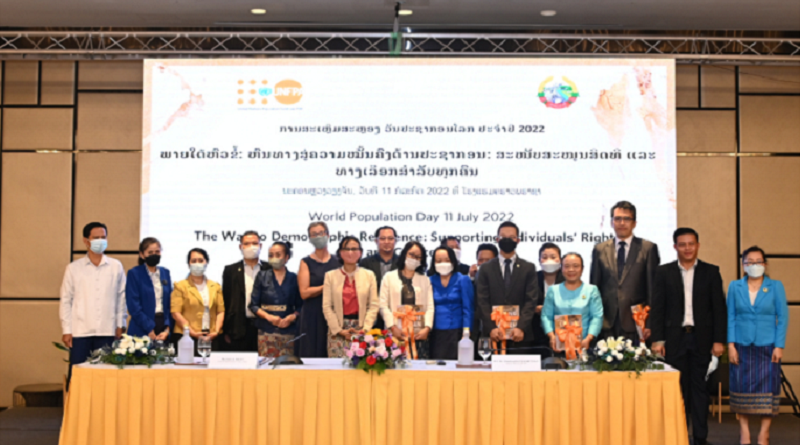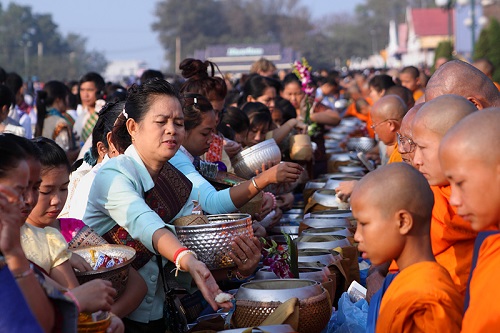World Population Day: A Time To Support Individuals’ Rights
Source: Vientiane Times
Local authorities around the country, as well as families, teachers and communities, must do more to uphold the rights of local people and ensure their needs are met.
This was the message from Deputy Minister of Planning and Investment, Dr Sthabandith Insisienmay, on Monday when speaking at an event in Savnnakhet province to mark World Population Day.
The theme of the event was: “Towards demographic resilience: supporting individuals’ rights and choices with support from the United Nations Population Fund (UNFPA) to spotlight Laos’ changing demographics and the importance of family planning.”
“The Ministry of Planning and Investment works closely with UNFPA to ensure that adolescent and youth friendly services are implemented everywhere, providing comprehensive information and care as part of Laos’ national commitments,” Dr Sthabandith said.
Also speaking at the event, the Deputy Governor of Savannakhet province, Mrs Lingthong Sengtavanh, said “Savannakhet is the largest province in Laos with 14 districts, one city and 1,024 villages.”
“78 percent of the population lives in rural areas. We believe that rights and choices are important for the future of our people, especially among youth and women of working age.”

“Savannakhet was the first province to embrace provincial and district plans under the 9th National Socio-Economic Development Plan for 2021-2025 and the International Conference on Population and Development (ICPD25) in 2019.”
In Savannakhet, the unmet need for family planning is 18.6 percent amongst married women, 32 percent of women aged 20-24 were married before the age of 18, and school dropout rates are above the national average, Mrs Lingthong said.
World Population Day is an occasion for central and provincial authorities to review the progress made on commitments made at the ICPD25 conference in Nairobi to address these issues and to invest in data, and strengthen services around midwifery, family planning, sex education, and ending gender-based violence.
UNFPA Representative to Laos, Ms Mariam A. Khan, said “With less than 8 years to go before 2030 – the deadline for the Sustainable Development Goals – acceleration and innovation is required to transform the lives of women and girls and reach those furthest behind.”
“When individuals, especially women and girls, are able to exercise their bodily autonomy, the human capital of the country is strengthened and they can contribute to social and economic growth,” she added.
Laos has high rates of secondary school dropout, child marriage, early childbearing, and unmet needs for family planning.
Population growth is changing the demographic structure, and impacting all social sectors, especially education and health.
Based on current trends, the population of Laos is projected to increase to 8.1 million in 2030. The largest age groups will be people of working age and females of reproductive age from 15 to 49 years.
The development and empowerment of those entering the working age group is urgent to harness the chances for demographic dividend.


